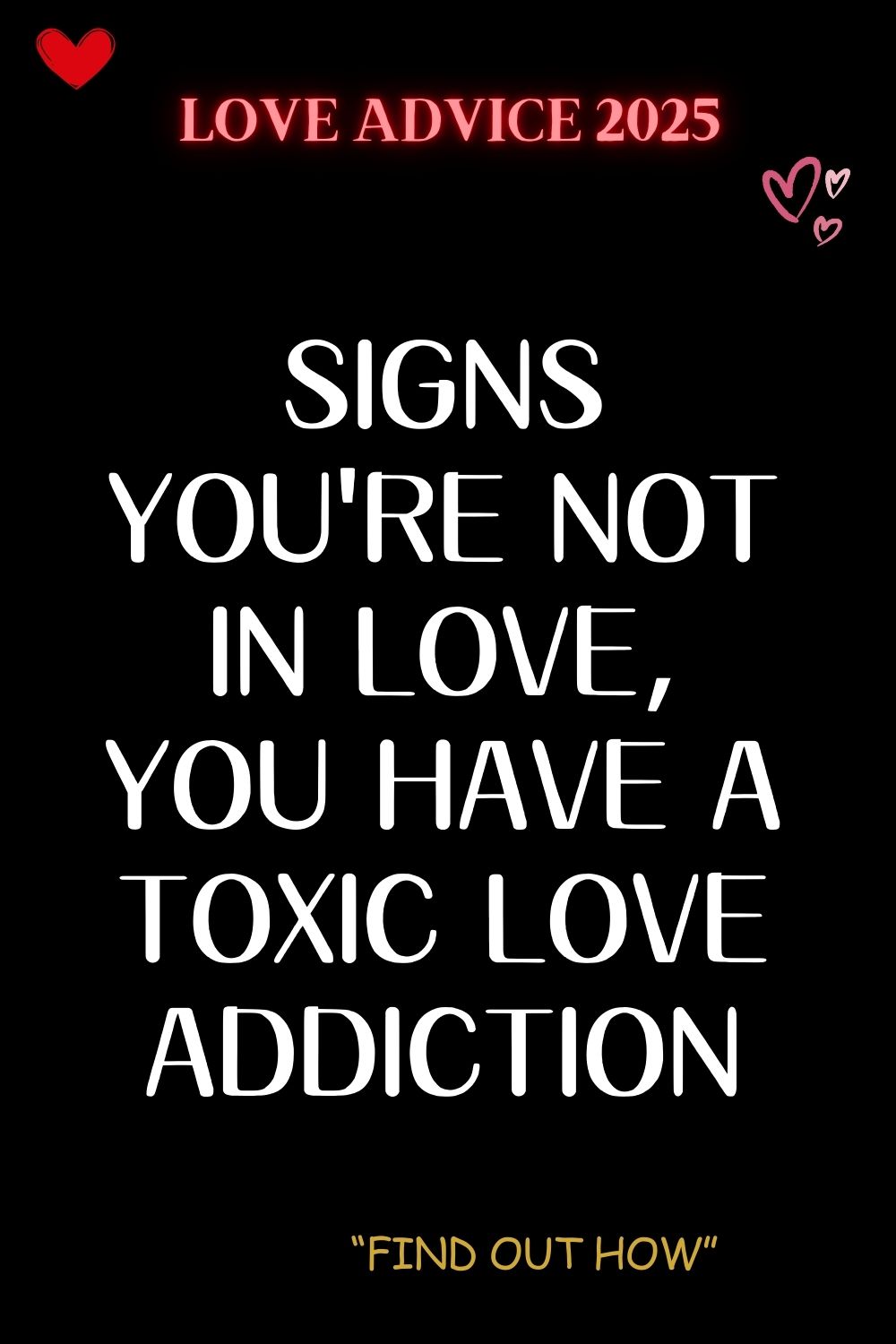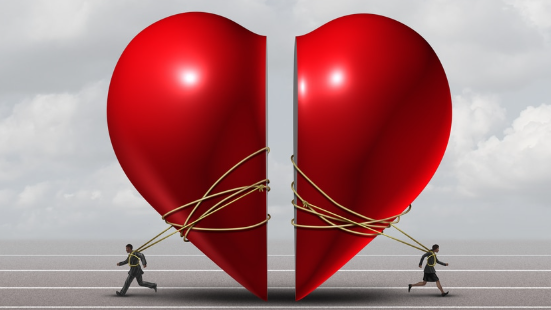Do you frequently pursue folks who are emotionally unavailable? Do you frequently find yourself in a cycle of toxic and unhealthy relationships? You can be addicted to poisonous love. Understanding how love, especially toxic love, affects our brains is liberating. We may better distance ourselves from persons who are harmful to our self-care if we are aware of these consequences. We can then learn to replace our unhealthy addiction with more wholesome outlets that promote self-empowerment if we are in an unhealthy romantic relationship.
The brain can always be “rewired” to focus on what helps us rather than what hurts us, so we still have the power to make better decisions and continue the healing process. Here are five ways that love, particularly when it involves a poisonous or hazardous person, affects your brain.
1. Your romantic interests consume you excessively, particularly if they are poisonous or emotionally unavailable. Serotonin levels are lowered by love to a level comparable to that of obsessive-compulsive disorder sufferers. We thus develop an obsessional fixation with our spouses.
Psychiatrist Donatella Marazziti found that serotonin levels in romantic partners are comparable to those in OCD sufferers. People with OCD often have abnormally low amounts of serotonin, a neurotransmitter that is known to have a role in mood regulation, particularly in relation to anxiety and sadness. This can lead to obsessive thinking. With this knowledge, our irrational thoughts regarding our partner become much more rational. When we fall in love, not only do our serotonin levels drop, but our cortisol levels also rise, causing us to feel more anxious and ready to “fight” this apparent “emergency.”
Our obsession with our spouse or love interest becomes so severe as a result of this combo that it feels like a life-or-death situation. It also clarifies why we have a propensity to obsessively think about our special someone all the time, regardless of whether they are healthy for us, and why we have a tendency to become so focused on them that we neglect everything else. When we are being love-bombed by a predatory partner, this effect may be particularly intensified.
2. You have an unbreakable attraction to poisonous individuals who mimic your parents’ behaviors. You find yourself in relationship after relationship because you are addicted to the highs and lows. Our brains genuinely look like drug addicts’ when we are in toxic love.
Love produces a dopamine rush unlike any other since it activates our brain’s reward and pleasure centers. The neurotransmitter dopamine is linked to the brain’s pleasure region and is also a major factor in desire and addiction.
We feel extreme exhilaration and are left craving more experiences with our sweetheart as a result of the dopamine that our new love floods our brains with. Indeed, Dr. Helen Fisher, a researcher, found that the brains of individuals who are in love are similar to those of cocaine addicts. This is why, even if your significant other is toxic for you, you could feel a strong withdrawal when they are not around or have distanced themselves from you.
3. Healthy, long-term love is perceived by your nervous system as “boring.” However much you desire a healthy love, you are inherently drawn to turmoil and instability. Compared to regular romance, love is a more powerful and “rewarding” experience for the brain since it involves both pleasure and pain.
Oddly, partnerships with hardship appear to have a higher dopamine effect. When there are sporadic bursts of pleasure interspersed with pain, dopamine is more easily transported to the brain, telling it to “pay attention.” As a result, we strive harder for the alleged benefits of a toxic relationship and build reward circuits in our brains that are stronger than those in a more stable, loving one when there is hot-and-cold conduct, persistent uncertainty, disputes, or even abuse.
Because it feels so good to earn their attention again, we put in a lot of effort to get back on track when we are constantly pushed off the pedestal by a toxic spouse. As strange as it may seem, this is the reason why poisonous relationships seem to be so alluring. Even though we can definitely exist without them, they make us aware that they seem crucial to our survival.
4. You discover that you are becoming distracted and unduly preoccupied with connections, including romantic ones. Parts of your brain physically “shut down” when you’re in toxic love.
Sort of. These brain regions “deactivate” when you fall in love, according to research by Bartels and Zeki. During this period, your amygdala, which controls your fight-or-flight response, tends to become more dormant. This also applies to your ventromedial prefrontal cortex, which is in charge of judgment, planning, critical thinking, and decision-making. Because your natural warning signs and your capacity for reasoned decision-making may be impaired, this is particularly risky if you are in a relationship with a toxic individual. It makes sense that you feel bound to your partner and unable to “fly.” And it makes sense that in your quest for love, even unrequited love, you make dubious choices against your better judgment.
5. Despite their unreliability, you frequently place your trust in harmful relationship partners.
People we love, especially those who have wronged us, tend to be blindly trusted by our minds. According to studies, even when trust has been betrayed (for example, by lying or infidelity), the release of oxytocin, the hormone that is properly dubbed “love” or “cuddle,” can result in an increase in trust. In a relationship, oxytocin bonding typically happens during physical interactions like kissing, intercourse, and snuggling. Therefore, be mindful that your evaluation of someone’s trustworthiness may be based on the peculiar, biased processes of your enamored brain rather than the true qualities of their character if you are in any way having physical contact with the person you love or are crushing on.





